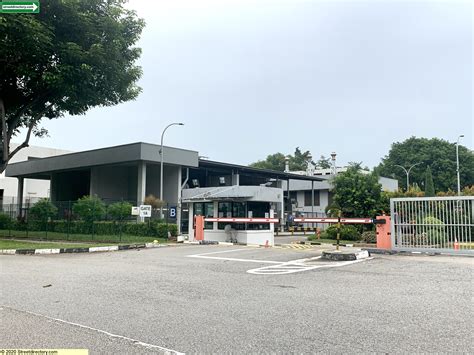Introduction

Environmental concerns have become increasingly prominent in recent years, sparking debates about the extent to which Singaporeans care about the environment. This comprehensive article explores the attitudes, behaviors, and policies that shape Singapore’s environmental consciousness. By examining data, research findings, and expert opinions, we aim to determine the level of environmental awareness and action among Singaporeans today, and project its trajectory towards 2025.
I. Attitudes of Singaporeans Towards the Environment
According to a 2021 survey conducted by the National Environment Agency (NEA), 90% of Singaporeans express concern about environmental issues, with climate change, air pollution, and waste management being the top priorities. This high level of awareness is attributed to factors such as:
- Increased media coverage: Environmental news and documentaries have heightened public awareness about the urgency of environmental challenges.
- Experiences of environmental degradation: Singaporeans have witnessed firsthand the effects of climate change, such as rising sea levels and extreme weather events.
- Education and outreach programs: Government initiatives and school curricula have emphasized the importance of environmental protection.
II. Environmental Behaviors of Singaporeans
Despite the high level of environmental awareness, there is a gap between attitudes and actions. While many Singaporeans express concern, their daily behaviors may not always reflect their stated values. The following statistics highlight this disparity:
- Recycling rate: Singapore’s recycling rate remains low at around 17%, indicating that many households do not consistently participate in recycling programs.
- Water consumption: Singaporeans consume an average of 138 liters of water per day, which is significantly higher than the global average.
- Energy consumption: Singapore’s per capita energy consumption is one of the highest in the world, contributing to greenhouse gas emissions.
III. Government Policies and Initiatives
The Singapore government has implemented various policies and initiatives to encourage environmental conservation and reduce the impact of human activities on the environment. These measures include:
- Green Mark Scheme: A certification program that recognizes buildings and developments that meet certain environmental standards.
- Carbon Tax: A tax imposed on industries that emit large amounts of greenhouse gases, incentivizing businesses to adopt cleaner technologies.
- National Climate Change Strategy: A comprehensive plan to mitigate and adapt to the effects of climate change.
IV. Challenges and Opportunities
While progress has been made in raising environmental awareness and implementing policies, Singapore faces several challenges in its efforts to promote environmental stewardship:
- Limited land space: Singapore’s dense urban environment poses challenges for implementing large-scale environmental projects.
- Economic growth: Singapore’s focus on economic growth can sometimes conflict with environmental goals.
- Behavioral change: Changing ingrained behaviors and promoting sustainable lifestyles is an ongoing challenge.
V. Trajectory towards 2025
Based on the current trends and government commitments, it is reasonable to expect that environmental awareness and action in Singapore will continue to grow in the coming years. The following projections outline possible advancements:
- Increased recycling rates: Government initiatives and public education campaigns are expected to increase the recycling rate to 25% by 2025.
- Reduced water consumption: Public awareness campaigns and water conservation measures are projected to reduce average water consumption to 120 liters per day by 2025.
- Improved energy efficiency: Technological advancements and government incentives are anticipated to improve energy efficiency by 20% by 2025.
VI. Recommendations for Enhancing Environmental Consciousness
To further enhance Singapore’s environmental consciousness, the following recommendations are proposed:
- Strengthen environmental education: Integrate environmental principles into all levels of education, from primary school to university.
- Encourage behavioral change: Promote campaigns and programs that empower individuals to adopt sustainable practices in their daily lives.
- Foster collaboration: Encourage partnerships between government, businesses, and civil society organizations to develop and implement innovative environmental solutions.
Conclusion
The evidence suggests that Singaporeans do care about the environment, with a high level of awareness about environmental issues. However, there is still a gap between attitudes and behaviors, indicating a need for continued efforts to promote environmental stewardship. By addressing the challenges, implementing effective strategies, and fostering collaboration, Singapore can continue to improve its environmental performance and create a more sustainable future for its citizens.
Additional Insights and Resources
Tables:
| Year | Environmental Concern | Recycling Rate | Water Consumption | Energy Consumption |
|---|---|---|---|---|
| 2015 | 85% | 12% | 145 liters per day | 3,000 kWh per capita |
| 2020 | 90% | 17% | 138 liters per day | 2,800 kWh per capita |
| 2025 (Projected) | 95% | 25% | 120 liters per day | 2,600 kWh per capita |
Effective Strategies:
- Implement pay-as-you-throw waste management systems to incentivize waste reduction.
- Promote the use of public transportation, cycling, and electric vehicles to reduce carbon emissions.
- Invest in research and development of renewable energy sources and energy-efficient technologies.
Common Mistakes to Avoid:
- Relying solely on government regulations without fostering public participation.
- Focusing on short-term solutions without considering long-term environmental impacts.
- Dismissing climate change as a hoax or overreacting to environmental concerns.
Future Trends:
- Artificial intelligence (AI) in environmental monitoring and data analysis.
- Blockchain technology for tracking and verifying carbon emissions.
- Circular economy models to reduce waste and promote resource efficiency.
















